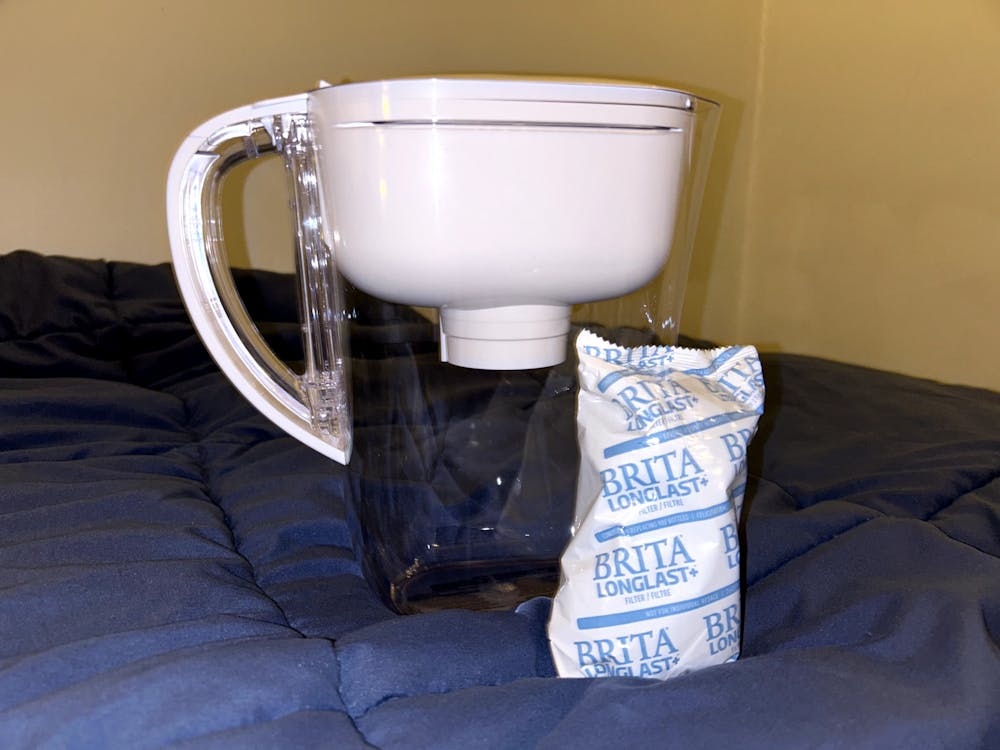A staple of college dorm rooms, Brita’s portable pitchers, jugs and water-bottle-style filtration systems claim to remove or reduce contaminants from water, including chlorine, lead and copper.
The company is currently facing a class-action lawsuit claiming that its advertising has misled consumers and its standard filters do not “remove or reduce to below lab detection limits common contaminants from drinking water.” Brita claims that their highest-end filters remove up to 99% of lead and eliminate most contaminants, while its standard filters advertise reducing “chlorine … mercury, copper, zinc (and) cadmium.”
The lawsuit alleges that by writing on their labels that their filters “Reduce 3X contaminants,” Brita has falsely given consumers the impression that the filter removes “arsenic, chromium-6, nitrate and nitrites” and other chemicals, including PFAS, also known as “forever chemicals.” It does not mention misleading claims about lead.
According to David Savitz, professor of epidemiology at the School of Public Health, PFAS generally result “from (a) water source being contaminated from industrial activities.” These substances can persist in water supplies for an extended period, he explained.
In general, water filters work differently depending on the contaminant that they are supposed to remove, making it difficult to test the general effectiveness of each product, Savitz said. “The effectiveness [of filters] depends on the chemical of concern, some being much easier to remove than others,” he added.
In a statement to Nexstar Media, the Clorox Company — Brita’s parent company — said that “Brita takes the transparency of the water filtration options we offer seriously.”
“Our products include a standard filtration option that improves taste and odor of tap water and is certified to reduce identified contaminants as communicated,” the statement reads. “For those consumers looking for water filters certified to reduce PFOS or PFOA, the Brita Elite pour-through and Brita Hub are both certified to reduce PFOS/PFOA, as well as lead and other identified contaminants.”
“Brita stands firmly behind the performance claims that it makes for its water filtration products,” Rachel Shahvar, a Brita spokesperson, wrote in an email to The Herald.
Shahvar wrote that the filters are “certified by independent experts, using best-in-class test methods to reduce the contaminants listed on (our) labels and product literature.”
James Ewing ’24 recalled using a Brita his junior year due to concerns about water coming out of old pipes in his residential hall.
Like Ewing, Ozzy Wagenseil ’26 uses a Brita filter for clean drinking water. But he said he started to reconsider after learning about the company’s lawsuit. “I really relied on that to get my water,” he told The Herald.
For students on campus, the University’s hydration stations provide clean drinking water to students in buildings. These stations are regularly maintained by the Department of Facilities Management with water taken from reservoirs sourced from the Scituate Reservoir.
The University’s Department of Environmental Health and Safety conducts periodic testing of lead levels in its water, according to the Office of Sustainability’s website. If the levels exceed 15 parts per billion, EHS works alongside Facilities Management and Auxiliary Housing to address the problem immediately.





